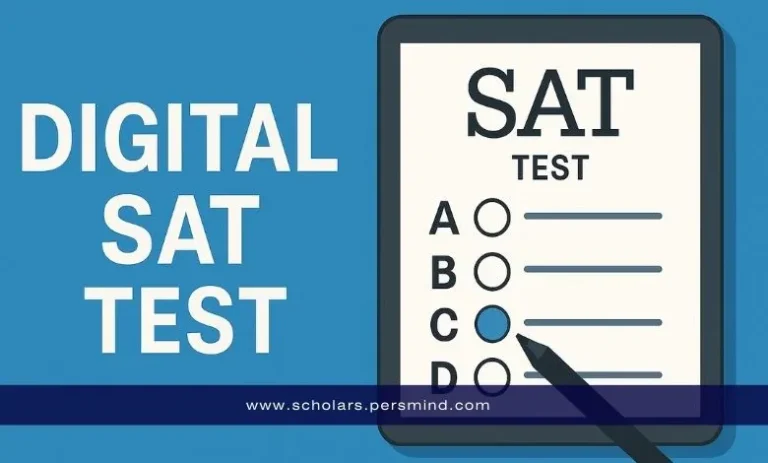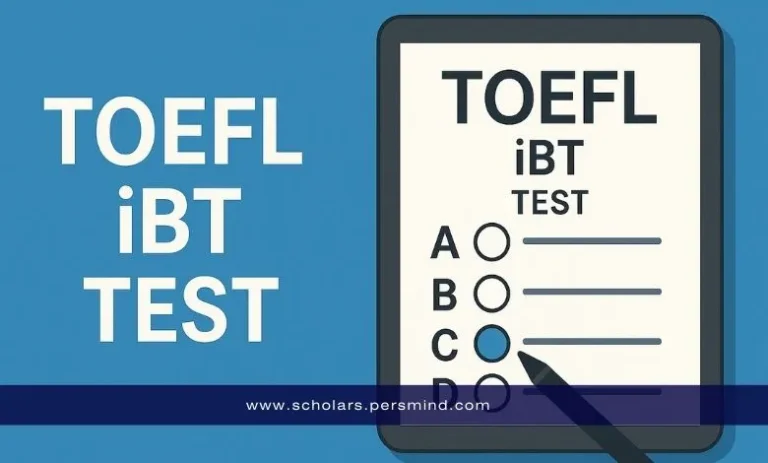The GRE General Test is an international standard for admission to master’s and doctoral programs, as well as an increasing number of MBA and even JD (Law) programs. Since September 2023, the test has become shorter (under two hours), delivers faster results, and is available in two formats — at a test center or from home.
This practical guide explains everything you need to know: what GRE is, how to register, fees, the new structure, retake policies, score release timelines, and a focused preparation plan.
What is the GRE and Why is it Required?
The GRE measures key skills for academic success: verbal and quantitative reasoning and analytical writing. Thousands of universities worldwide accept GRE scores for admission to graduate, business, and law programs.
The New Short GRE (Under Two Hours)
Total Duration: About 1 hour and 58 minutes
Structure: 5 sections completed in one sitting:
Analytical Writing (AWA): One task – Analyze an Issue (30 minutes)
Verbal Reasoning: 12 questions (18 minutes), then 15 questions (23 minutes)
Quantitative Reasoning: 12 questions (21 minutes), then 15 questions (26 minutes)
The test always begins with Analytical Writing, followed by Verbal and Quantitative sections in any order.
Where and How Can You Take It? (Center / Home)
You have two options:
Test Centers available in 160+ countries.
At-Home Test available 24/7 (7 days a week), provided your device and environment meet ETS requirements.
To confirm availability of the home test in your country, create an ETS account and start the registration process.
Fees (2025) — Important Note
China: USD 231.30
Rest of the world: USD 220
(Additional services like rescheduling or score reports may vary.)
Tip: Always check the official fee page during registration, as fees may change without prior notice.
Step-by-Step Registration Process
Create or log in to your ETS account.
Choose your test location (center/home) and date.
Complete payment via available methods.
Review your confirmation email and test-day instructions carefully.
Retake and Reattempt Policies
You may take the GRE General Test once every 21 days, up to five times within any continuous 12-month period, even if you’ve canceled a previous score.
Keywords: GRE 2025, Graduate Record Examination, GRE Preparation, GRE Test Paper, Graduate Admission Exam, GRE for International Students
Scores and Results (Release Time + Scale)
Score release: Within 8–10 days after your test date.
Validity: 5 years from the test date.
Score scales:
Verbal Reasoning: 130–170 (1-point increments)
Quantitative Reasoning: 130–170 (1-point increments)
Analytical Writing: 0–6 (half-point increments)
The Verbal and Quantitative sections are section-level adaptive, meaning your performance in the first section affects the difficulty of the second.
Test Sections and Content
Analytical Writing (AWA): Evaluates critical thinking and the ability to construct a logical, coherent argument using clear language.
Verbal Reasoning: Assesses reading comprehension, reasoning, and understanding of vocabulary in context.
Quantitative Reasoning: Covers algebra, geometry, statistics, and data interpretation fundamentals.
Smart 4-Week Preparation Plan
Week 1: Quick level diagnosis (sample test) + identify your gaps.
Week 2: Intensive Verbal practice (timed reading, long passages, sentence completion/equivalence).
Week 3: Quantitative focus — solve exam-like problem sets with time limits; review common errors (ratios, charts, tables).
Week 4: Full mock test (1:58 hours: AWA + Verbal + Quant) with time strategy:
Start with easy-to-medium questions quickly.
Mark difficult ones for the final 2–3 minutes.
Review “flagged” questions before submitting each section.
Official prep resources:
Use the ETS website, official bulletins, and practice questions before relying on third-party materials.
Home Test Requirements
A computer that meets ETS technical requirements, updated browser, stable internet, working camera, and a quiet, private space.
Failure to meet these conditions on test day may result in test cancellation without refund.
Frequently Asked Questions (FAQ)
Is the GRE mandatory?
It depends on the university/program. Many institutions still recommend or accept GRE scores for master’s, MBA, or JD programs. Always check your program’s specific requirements.
When will my score be available?
Within 8–10 days through your ETS account, with official reports sent to the institutions you selected.
Do fees differ by country?
Yes. For example, $220 in most countries and $231.30 in China (subject to change). Always refer to the official ETS fee page before booking.
What about GRE Subject Tests?
Available in Mathematics, Physics, and Psychology during select sessions (September, October, April) at centers and limited home dates. Subject test fees are separate.
Common Mistakes That Lower Your Chances
Ignoring the short GRE format and failing to train under its new timing.
Relying on outdated or unofficial fee tables.
Tackling sections in random order without a time strategy.
Neglecting the Analytical Writing section, despite its academic weight.
Trusted Official External Links
Registration and location options (Center/Home): Official ETS portal
Global fees and updates: ETS Fee Page
New test structure and duration (1:58): ETS Test Format Page
Conclusion
The shorter GRE offers time efficiency without sacrificing measurement reliability. Update your preparation plan according to the new duration, train for speed and accuracy, and always verify fees and dates directly from official ETS sources before taking any step.
Combining a strong GRE score with a solid academic profile (GPA, recommendations, SOP) significantly boosts your chances of admission to top-tier programs.




0 Comments